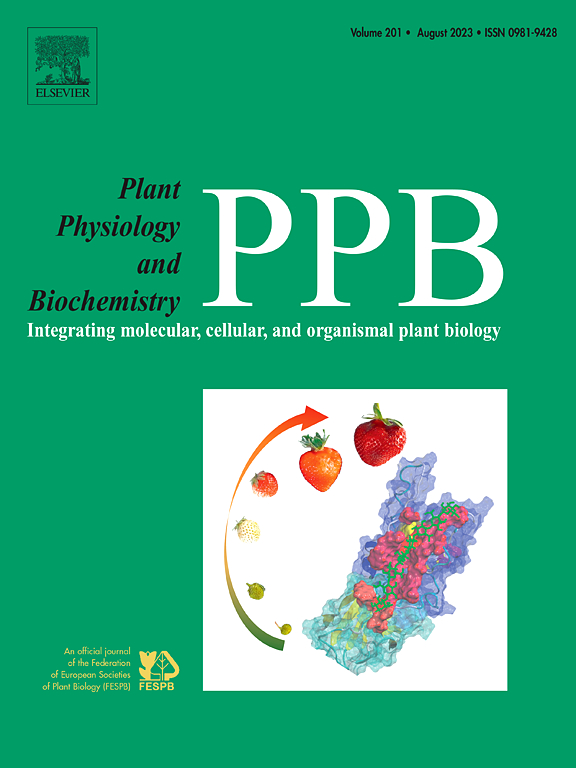NtWRKY28 orchestrates flavonoid and lignin biosynthesis to defense aphid attack in tobacco plants
IF 6.1
2区 生物学
Q1 PLANT SCIENCES
引用次数: 0
Abstract
WRKY transcript factors(TFs) play crucial roles in plant response to biotic and abiotic stresses. However, how WRKY TFs response to aphid feeding are still poorly understood. Herein, NtWRKY28, a tobacco WRKY transcript factor gene induced by Myzus persicae feeding, was identified, and its regulatory roles were characterized in response to Myzus persicae feeding. The results showed that NtWRKY28 expression was induced by infestation of Myzus persicae, mechanical injury and MeJA treatment in tobacco plants. Overexpression of NtWRKY28 enhanced tobacco plant resistance to Myzus persicae, while silence of NtWRKY28 rendered tobacco plants more susceptible to infestation of Myzus persicae. Additionally, NtWRKY28 promoted the content of flavonoids and lignin through positively modulating the expression of genes involved in phenylpropanoid pathway, flavonoid and lignin biosynthesis. Our results not only provide new insights into the mechanism that WRKY TFs regulate tobacoo resistance to aphids, but also lay a theoretical foundation for breeding new tobacco varieties against aphids.
求助全文
约1分钟内获得全文
求助全文
来源期刊
CiteScore
11.10
自引率
3.10%
发文量
410
审稿时长
33 days
期刊介绍:
Plant Physiology and Biochemistry publishes original theoretical, experimental and technical contributions in the various fields of plant physiology (biochemistry, physiology, structure, genetics, plant-microbe interactions, etc.) at diverse levels of integration (molecular, subcellular, cellular, organ, whole plant, environmental). Opinions expressed in the journal are the sole responsibility of the authors and publication does not imply the editors'' agreement.
Manuscripts describing molecular-genetic and/or gene expression data that are not integrated with biochemical analysis and/or actual measurements of plant physiological processes are not suitable for PPB. Also "Omics" studies (transcriptomics, proteomics, metabolomics, etc.) reporting descriptive analysis without an element of functional validation assays, will not be considered. Similarly, applied agronomic or phytochemical studies that generate no new, fundamental insights in plant physiological and/or biochemical processes are not suitable for publication in PPB.
Plant Physiology and Biochemistry publishes several types of articles: Reviews, Papers and Short Papers. Articles for Reviews are either invited by the editor or proposed by the authors for the editor''s prior agreement. Reviews should not exceed 40 typewritten pages and Short Papers no more than approximately 8 typewritten pages. The fundamental character of Plant Physiology and Biochemistry remains that of a journal for original results.

 求助内容:
求助内容: 应助结果提醒方式:
应助结果提醒方式:


